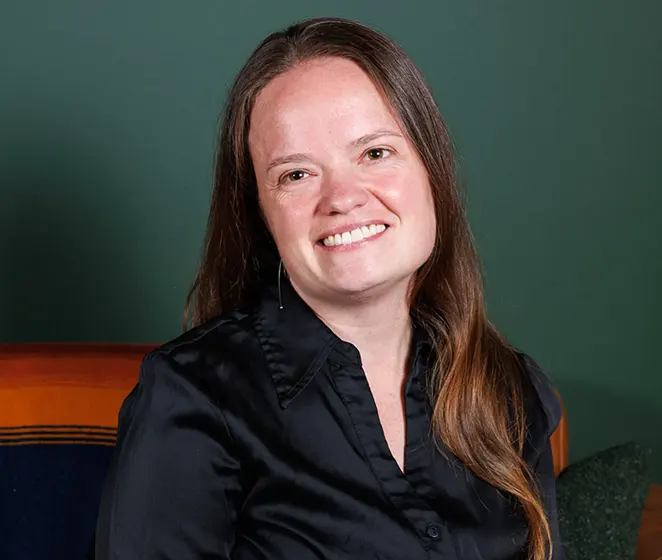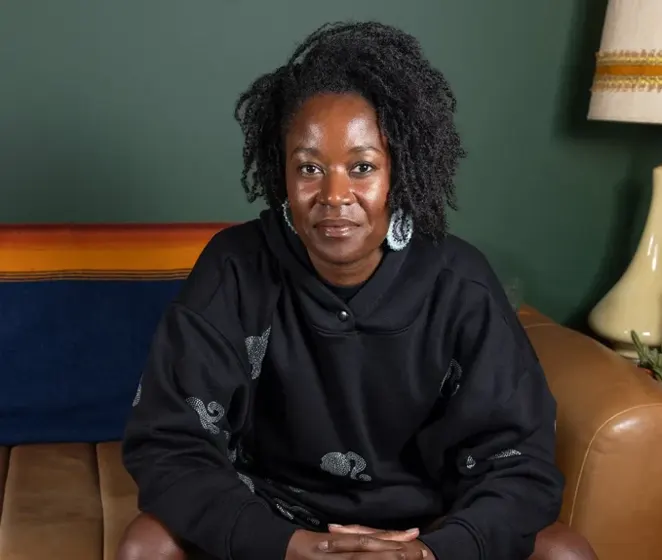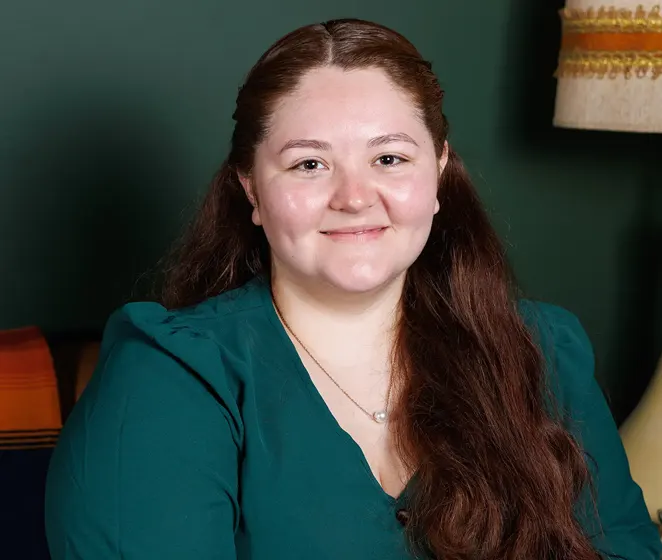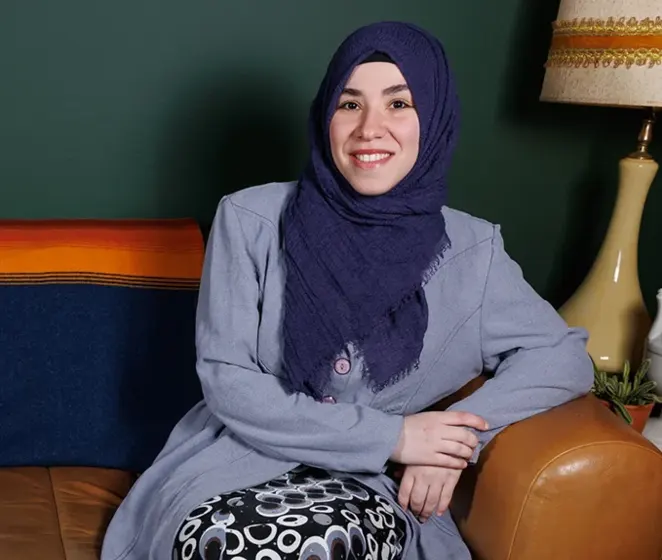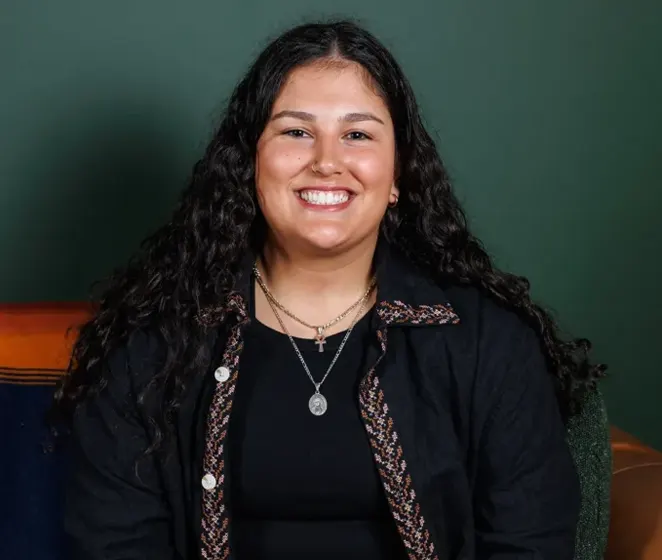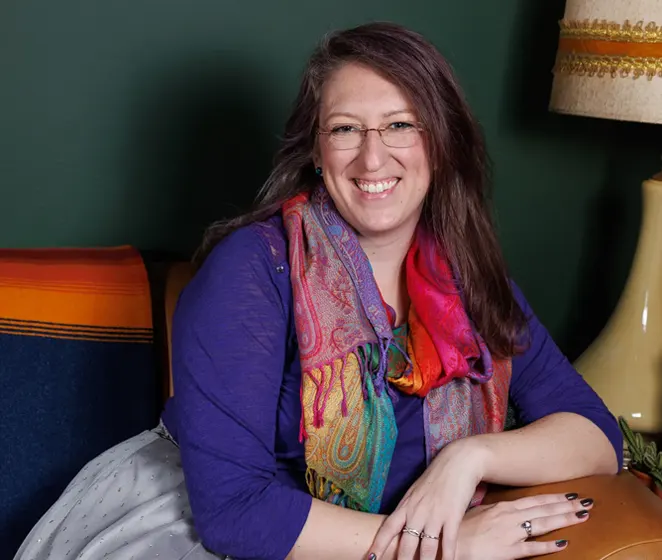
Liz Frost is the Owner and Founder of Intentional Spaces Psychotherapy, a trauma-informed telehealth practice based in Washington State. She specializes in helping clients heal from complex trauma, religious harm, and identity-related struggles. With over a decade of clinical experience, Liz integrates EMDR, narrative therapy, and mindfulness-based approaches. She is dedicated to serving the LGBTQIA+ community and fostering a supportive, inclusive practice for both clients and clinicians.
Here’s a glimpse of what you’ll learn:
- [01:21] Liz Frost explains why she chose to specialize in trauma and PTSD
- [02:55] Supporting clients from LDS and evangelical backgrounds without requiring them to educate their therapist
- [06:50] Creating a safe therapeutic space by helping clients redefine safety in their bodies and minds
- [09:40] Common misconceptions about trauma therapy and why functioning adults can still carry significant trauma
- [15:30] How therapy helps clients rebuild self-trust and move toward what they want without guilt or shame
- [29:49] Measuring healing in trauma therapy by tracking symptom relief and deeper self-connection
In this episode…
For many, trauma is not a singular event but a deeply embedded pattern that influences thought, behavior, and identity. How can therapy help untangle those layers and create a sense of safety that may have never existed before?
According to Liz Frost, a licensed therapist specializing in trauma and PTSD, trauma is less about what happens to someone and more about how their internal world is shaped by that experience. She highlights how trauma often hides behind high-functioning lives, quietly altering self-worth, trust, and relationships. The impact is subtle yet pervasive, influencing how people navigate desire, safety, and identity. Liz also explores how trauma-informed therapy requires more than surface-level understanding. It demands cultural competence, lived experience, and deep presence. By helping clients redefine safety, process generational wounds, and reconnect with their internal compass, Liz supports them in reclaiming who they are beyond what happened to them.
In this episode of With Intention, Liz Frost, Owner and Founder of Intentional Spaces Psychotherapy, is interviewed by Chad Franzen of Rise25 Media to talk about what trauma is and how it shows up in our lives. She discusses how to rebuild safety in therapy, why trauma isn’t always visible, and what it takes to heal from religious and generational wounds. Liz also shares how therapeutic modalities like EMDR and IFS support long-term healing.
Resources Mentioned in this episode:
Quotable Moments:
- “You don’t have to explain this to me. I understand, and I’m pretty selective with self-disclosure.”
- “We’re trying to bring them back to who they would have been had the trauma not happened.”
- “It’s really beautiful to see how someone blooms when you give them the safety to be.”
- “Everything is changed. You don’t know where you are anymore, but you’re somewhere more beautiful.”
- “Desire in general in the church is seen as something bad and often in trauma too.”
Action Steps:
- Redefine what safety means for each client: Understanding individual definitions of safety creates a foundation for effective trauma recovery.
- Avoid over-pathologizing client behavior: Recognizing that not every behavior stems from trauma helps preserve a client’s sense of identity.
- Incorporate multi-modality therapy techniques: Using EMDR, CBT, and IFS together addresses complex trauma from multiple angles for deeper healing.
- Challenge internalized beliefs with curiosity: Asking where beliefs originated allows clients to separate truth from inherited narratives and reclaim autonomy.
- Center marginalized voices in clinical work: Actively listening and learning from clients’ lived experiences builds trust and reduces systemic harm in therapy.
Sponsor for this episode
This episode is brought to you by Intentional Spaces Psychotherapy.
Founded by Liz Frost, LICSW, Intentional Spaces offers inclusive, trauma-informed virtual care across Washington State, helping individuals, couples, and families navigate life’s complexities.
Whether you’re processing religious trauma, exploring your identity, or seeking support for anxiety or depression, their diverse team of therapists specializes in EMDR, CBT, DBT, and narrative therapy, ensuring personalized support for every client.
Ready to embark on your healing journey? Go to intentionalspaces/contact, and take the first step toward a more intentional life.







